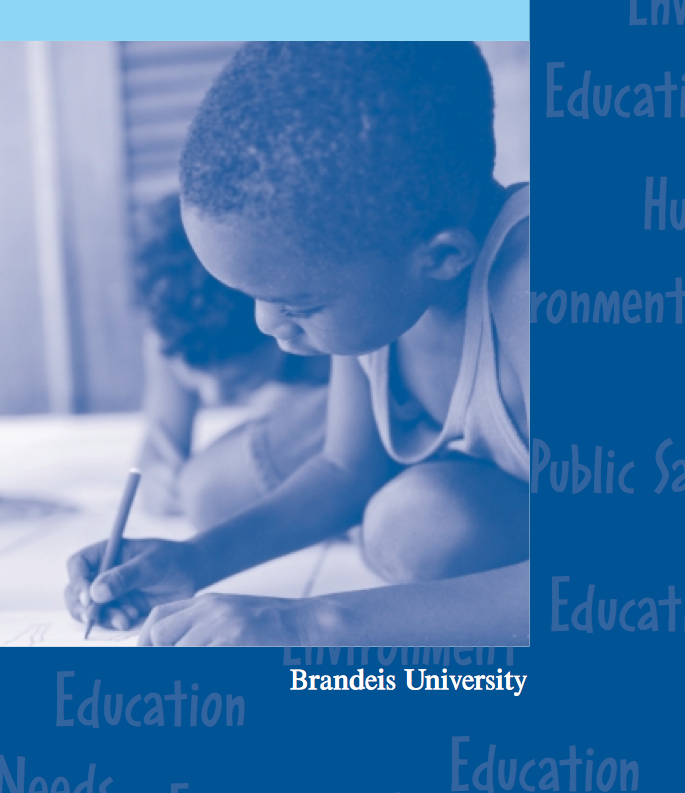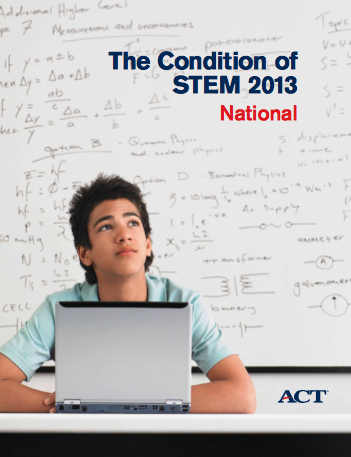Creative Transitions Initiative

This report, on the Creative Transitions Initiative, demonstrated that arts programs, although very brief, can be valued by young people and DYS youth workers, and have the potential to produce an array of positive experiences and outcomes for young people in DYS facilities. In 2005, a statewide “ArtsInFusion” coalition was formed in Massachusetts to integrate the… Read More ›
National Evaluation of Learn and Serve America, Summary Report

In 1993, the National and Community Service Trust Act (P.L. 103-82) established the Learn and Serve America School and Community-Based Programs to support school and community-based efforts to involve school-aged youth in community service. Between 1994 and 1997, Brandeis University’s Center for Human Resources and Abt Associates Inc. conducted an evaluation of the national Learn… Read More ›
The Power of Combining Youth Development Principles, Culture and Arts: Findings of a Study of the Culture & Arts Youth Development Initiative

This study from the Skillman Foundation features the results of an evaluation of its Culture and Arts Youth Development Initiative, which integrates youth development with arts and culture by providing youth in underdeveloped neighborhoods opportunities to participate in long-term exposure to the arts. The findings are based on the evaluation of the first four years… Read More ›
Taking Democracy In Hand: Youth Action For Educational Change in the San Francisco Bay Area

More than field notes but less than a case study, this informal paper draws upon site interviews and conversations with ten Bay Area youth organizing groups, highlighting some of their burgeoning accomplishments and growing wisdom. It also outlines how their work builds, step by step, capital and capacity among participants; why youth-adult partnerships are important;… Read More ›
My Voice National Student Report, 2014 Grades 6-12

The mission of My Voice, a Pearson Foundation initiative, is to help measure the perceptions of everyone at school, elevate the impact of student voice and foster the changes that are vital for students to realize academic, social and personal success. The My Voice Survey was created to assess a framework developed by the Quaglia… Read More ›
If I Could Lead A School: A Student-Driven Participatory Design Studio to Re-imagine Education

This Student Experience Lab explores how good design can improve the quality of learning experiences for students by not only listening to the voices of the students but also engaging them in the conceptual development of new systems. 40 young people in Rhode Island tackle the challenge to design a new student experience for a 21st… Read More ›
A Step-by-Step Guide to Personalized Learning

This report offers a six step approach on how to create a classroom environment that gives each learner a voice and choice. It first provides the background on what is and what is not “Personalized Learning.” Then the authors provide a condensed version of their “Stages of Personalized Learning,” recognizing that achieving personalization within a… Read More ›
Classroom Assessments that Informs Instruction

This paper introduces educators to the concept of assessments that informs classroom instruction. It offers representative formative assessments that elementary, middle, and high school teachers can use in their classrooms to inform their instructional practices. Specifically, the authors illustrate assessments teachers can use before, during, and after instruction that will help them understand their students’ learning… Read More ›
Even Geniuses Work Hard

In this paper, Carol Dweck brings to attention how research has shown that when students have a fixed mindset, they value looking smart over learning. Her research shows that students with a growth mindset—those who believe that their intelligence can be developed—are eager learners. Dweck argues for building a culture of risk taking that builds… Read More ›
Mean What You Say: Defining and Integrating Personalized, Blended and Competency Education

This paper is intended to provide a scan of the literature and expand the knowledge base for the field to integrate the core ideas of personalized learning, blended learning, competency education, and standards. The goal of the paper is to explain the nuances of key terms used across the field of K-12 education related to… Read More ›
Spotlight: The Changing State of Assessments

This article addresses how formative assessments support teaching and learning as well as how testing is changing in the common-core era. Additionally, it provides arguments on key factors needed to build high-quality assessments. This is a fee-based resource. Source Organization: Education Week VISIT THE RESOURCE
The Condition of STEM 2013

This report by the ACT Foundation includes information specific to STEM-related fields for the graduating class of 2013 that took the ACT test. Test data provides research on students’ interest in STEM careers, and math and science readiness. The report is broken into four main areas: science, computer science and mathematics, medical and health, and engineering and technology. The authors… Read More ›